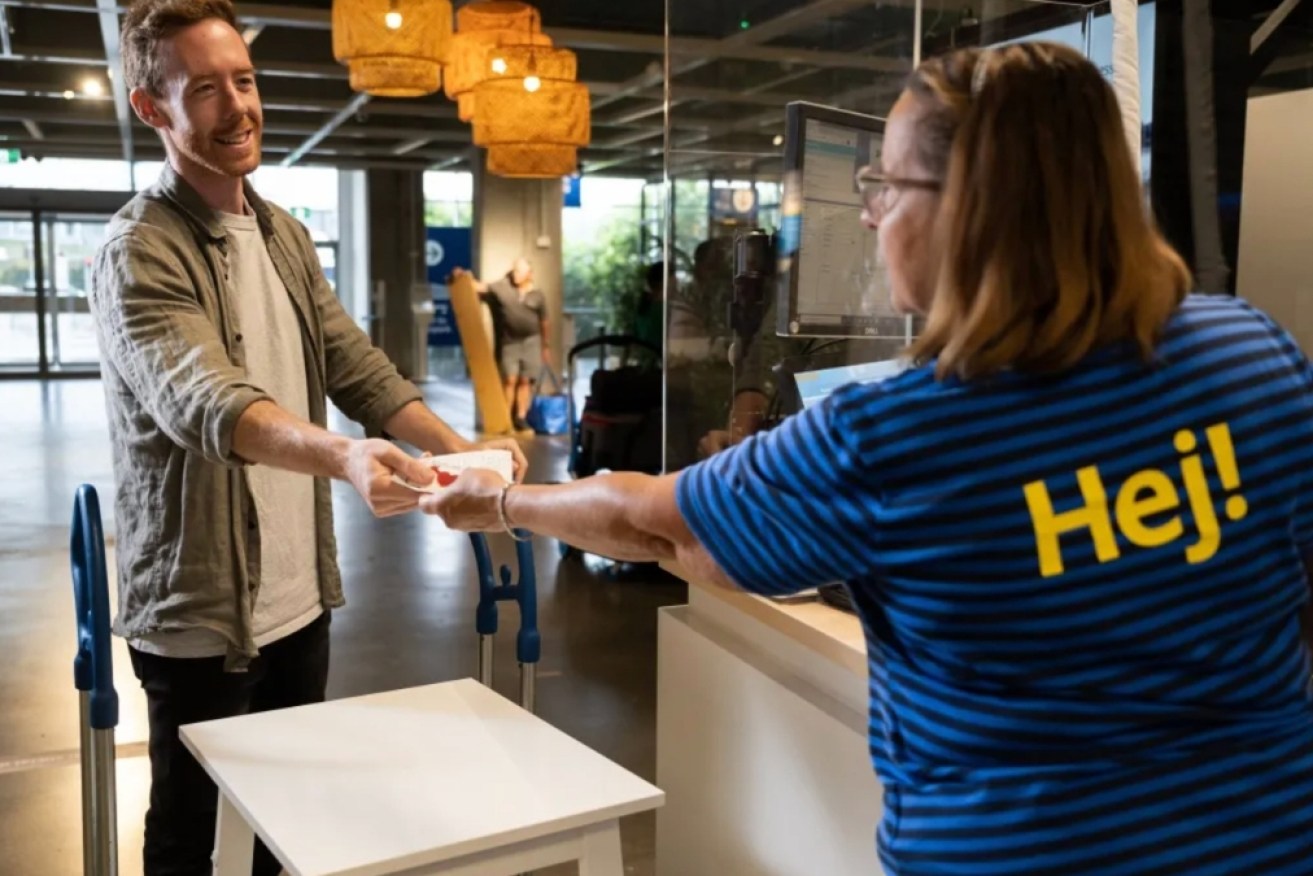Retail workers get taste of flexible work with extra week of annual leave


Essential workers are finally seeing a long-overdue reward for their efforts. Photo: Ikea
Retail workers are among thousands of employees across Australia who have often missed out on increasingly flexible work options in recent years.
But many of those at some of the country’s biggest companies are finally enjoying a win, with an extra week of annual leave being offered.
Bunnings, Ikea and Apple are among major retailers who have committed – either immediately or in phases – to giving staff the option of five weeks of annual leave instead of the standard four as part of new enterprise agreements.
Big W has introduced a week of “boosted leave”. It is treated separately to annual leave, and must be taken each year or it will be refunded to the employee.
Coles, Woolworths and Kmart are still negotiating new agreements that include a similar provision.
Ikea Australia co-worker experience leader Greg Day said the furniture giant was trying to change the perception of retail as a “casual and transient” job, in favour of it being seen as a more attractive, longer-term career option.
“We introduced five weeks’ leave as a way for our co-workers to better balance work life with life at home,” he said.
“Each co-worker has individual differences in their personal life, and we know extra leave allows for things like caring for children in school holidays, sporting or hobby commitments, time for study, travel.
“Besides five weeks’ annual leave, other standout changes we’re proud of in this new agreement include the introduction of a fixed rostering option, a four-day work week, paid parental leave regardless of tenure and superannuation on unpaid parental leave, and new inclusive leave types.”
SDA NSW secretary Bernie Smith said a fifth week of annual leave would help reduce the gap between productivity gains and wages that had developed in the past two decades.
“Long-term low-wage growth has seen a gap of 7 per cent open up over the past 20 years between productivity gains and wages for retail workers,” he said.
“We also know the importance of a healthy work-life balance for workers and the benefits this creates for customers and businesses.
“In the modern retail industry, where work is conducted often around the clock, on weekends and some public holidays, the extra week of annual leave is well-deserved time back in the pockets of workers.”
Annual leave entitlement hasn’t kept up with the times
Dr Fiona Macdonald, industrial and social policy director at the Centre for Future Work, said wages in the retail and hospitality sectors had fallen behind productivity increases.
Pressures on employees’ work-life balance had also changed since four weeks of annual leave was introduced for full-time, permanent employees in the 1970s.
“Back then, we didn’t have so many people who were managing work and care responsibilities at the same time, and trying to balance those,” Macdonald said.
“This longer annual leave can be enormously beneficial for [the] working family.”
It was also more common in the 1970s for workers to stay with one employer for many years, if not their entire working lives, meaning many clocked up long service leave.
Now job-hopping is far more common, with 9.5 per cent of employees in Australia switching companies in the 12 months to February 2023.
Macdonald said increased job mobility lowered the chances of many workers becoming eligible for long service leave, making increased annual leave even more important.
A win after white-collar flexible work deals
Gartner human resources advisory director Neal Woolrich said pandemic restrictions had ushered in a new world of flexible working options for many office-based workers.
But changes such as working from home or hybrid work are far less of an option for workers in sectors such as retail.
Industry experts say annual leave offers much-needed flexibility for these workers, and comes at a relatively low cost for employers – who will likely enjoy a spike in productivity and lower rates of employee burnout as a result.
Seek data released in 2022 shows 67 per cent of employees have felt burnt out, with 36 per cent leaving a job because of it.
“One of the things that we’ve noticed recently is a big uptick in concerns around burnout and fatigue,” Woolrich said.
“One of the remedies that we’ve been focused on a lot is this concept of ‘proactive rest’, and making sure that we’re giving our people enough time to recover from burnout and fatigue.
“What we’ve found is that those organisations that do encourage proactive rest have seen improvements in their employee performance as well. So it’s a smart thing to do from a business point of view, and also an employee point of view.”








